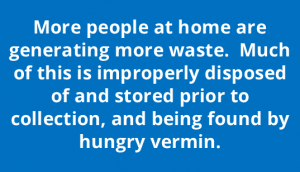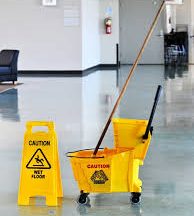 July 2020
July 2020
There has been an increase in rodent activity in Toronto, across Canada and the United States resulting from COVID restrictions that have closed restaurants and limited others to take-out and delivery.
Rodents are searching for new food supplies and many have found it in high-rise communities.
Landlords report their residential communities experiencing more rats, mice and other vermin since COVID-19-imposed closures. Abell Pest Control reports a 50 percent increase in rat extermination calls across Canada. Across Toronto there has been a 36 percent increase in calls.
When restaurants closed due to COVID many discontinued their pest control procedures. Trash bags of food left for waste collection disappeared. The available food source for rodents disappeared. The went looking elsewhere for food. Many found it on residential properties that failed to maintain effective pest control and waste management procedures. Post-COVID, many restaurants don’t plan to reopen which means residential communities will remain a more important food source for rodents.
 Concurrently, more people at home are generating more waste. Much of this is improperly disposed of and being found by these hungry vermin.
Concurrently, more people at home are generating more waste. Much of this is improperly disposed of and being found by these hungry vermin.
High-rise and condominium communities generate large amounts of food waste. Much of this is not properly bagged by residents or stored by communities prior to collection. Investing in effective pest control and waste management systems is the only way to deter vermin so as to minimize risk of infestation and disease.
- Engage the services of reputable pest control and waste management services
- Ensure waste bins, cans and dumpsters have lids and that they remain closed
- Regularly clean waste bins, dumpsters and trash chutes
- Don’t allow dumpsters and waste bins to overflow
- Keep pet food and bird seed out of reach of rodents
- Seal small holes where rodents can gain entry to buildings
Communities that include commercial restaurants at ground level or nearby are at greatest risk of increased infestation.







